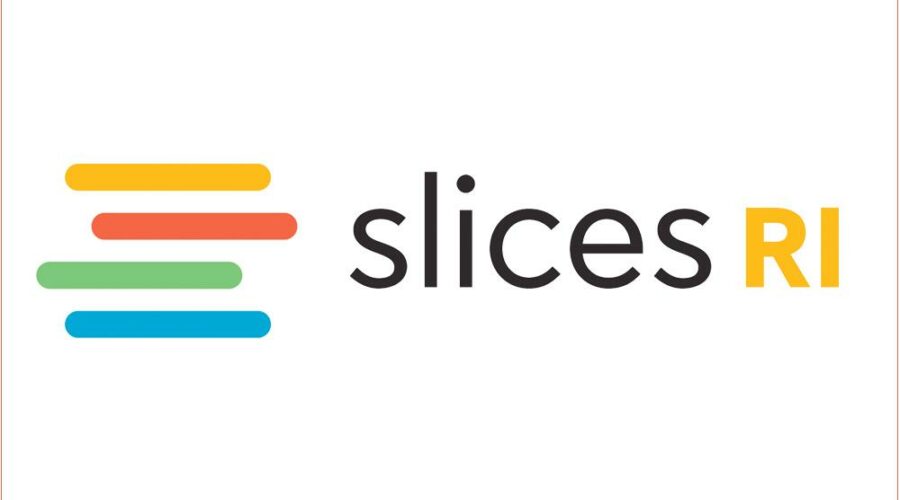IMDEA Networks

UC3M and IMDEA Networks present the SLICES research infrastructure
Cutting-edge ICT experimentation in Spain
29 January 2024

The Universidad Carlos III de Madrid (UC3M) and IMDEA Networks are going to present the Spanish scientific community with a new instrument for carrying out complex experiments in the area of digital sciences. SLICES (www.slices-ri.ue), as it is called, is available to research staff and is part of a European infrastructure for experimenting in the information and communication technologies (ICT) of the future, which is based in Spain at UC3M.
At the SLICES UC3M Conference, which will take place at the University’s Leganés Campus on the 31st of January, several UC3M researchers working in areas and platforms related to the Spanish SLICES node at different levels will present its main characteristics and the scope of several of the services provided by this infrastructure. IMDEA Networks and the University of the Basque Country are also participating in the Spanish SLICES node (SLICES-ES), as well as UC3M. The event is expected to be attended by UC3M’s Vice-Rector for Research and Transfer, Luis Enrique García Muñoz, and the Deputy Minister for Universities, Research and Science of the Community of Madrid, Ana Ramírez de Molina.
Two advanced experimentation services from the SLICES-Madrid node (slices-madrid.eu), will be presented at this conference hosted at UC3M. SLICES-Madrid will allow, among other services, large-scale experiments to be carried out with a very powerful Internet of Things (IoT) satellite service with coverage throughout Europe. One of the researchers who has driven this project, Carmen Guerrero, from the UC3M Department of Telematics Engineering, highlights the usefulness of this infrastructure as an instrument for the scientific community in the area of future networks. “They will have access to cutting-edge deployments to carry out experiments that are currently not readily available to scientists in general, or that do not even exist today. In fact, there is currently a lack of access to experimental facilities and SLICES will provide these services to the research community in Europe”.
“This is a very important milestone because it represents that Europe is aware of the need for strategic autonomy in information technologies. We have to join forces to improve their R&D capabilities in this respect,” says Arturo Azcorra, director of IMDEA Networks and professor at UC3M. And he adds: “This is great news, therefore, for the academic and business world, as well as for society. It is a milestone that we can consider global in scope in the field of open experimentation via satellite.”
We are currently experiencing a major technological revolution in the area of ICT. The scientific community is constantly researching new solutions to support this transformation and therefore contribute to improving our lives. As a result, several scientific infrastructures have emerged that offer experimentation services with cutting-edge resources, which are otherwise only offered in industrial R&D laboratories with limited functionality. And it is precisely to combat these problems that the ESFRI SLICES research infrastructure has been launched, providing high-quality experimentation services with emerging technologies in fields such as 5G/6G, the Internet of Things (IoT), Network Functions Virtualisation (NFV) or Cloud Computing, for example.
About IMDEA Networks and UC3M
The Universidad Carlos III de Madrid (UC3M) is a Spanish public university that excels in research, teaching and innovation. It is among the best universities in the world in the QS World University Rankings 2024 and among the best universities for the employability of its graduates, according to the latest edition of the Times Higher Education (THE) Global University Employability Ranking. UC3M is the first university in Europe to obtain ACEEU dual accreditation for its contribution and impact on the industrial and social fabric, and it also has other accreditations and quality awards, such as the EUR-ACE seal in the field of engineering or the AACSB accreditation in business and finance programmes.
IMDEA Networks is a research institute for computer and communication networks, whose multinational team works on fundamental science and cutting-edge technology. As a growing, English-speaking institute based in Madrid, Spain, IMDEA Networks offers a unique opportunity to pioneering scientists who aspire to develop their ideas. IMDEA Networks has established itself internationally at the forefront in the development of future network principles and technologies. Our highly-reputed research team is designing tomorrow’s networks today.
More info
Scientific Large Scale Infrastructure for Computing/Communication Experimental Studies: Spanish node https://www.slices-madrid.eu/



Recent Comments